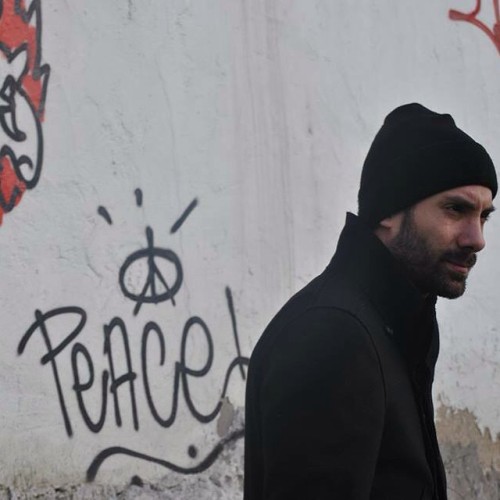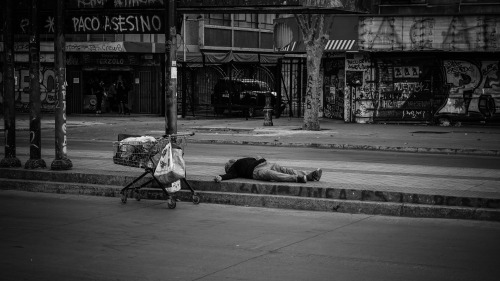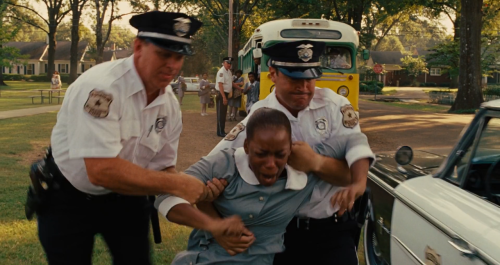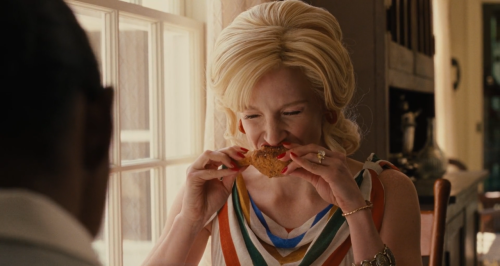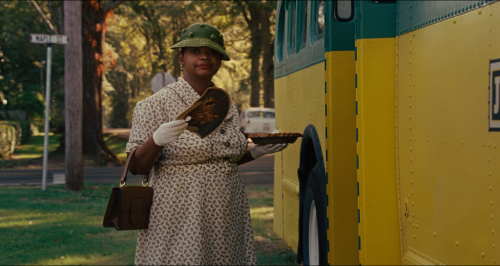#society
a secret code between women: are you safe? in a contact of eyes. i’m here if you need me, the littlest shift of a skirt, of an inclined head, of watching the man who is asking you to smile, bitch. you aren’t alone on the walls of restrooms, i was where you are too. the quiet doling of emergency numbers, the shelters. the space between two women in a largely empty train station. the waiting game of two women strangers who walk, quietly and quickly, to their cars in abandoned parking lots, who watch to be sure the other leaves safely. text me you get home safe. the tally marks of drinks on hidden wrists, carefully disguised as other things ever since men picked up on what it meant and used it to target the “weakest link.”
my father tells me we have nothing to worry about. last night he sent me one of those email chains that say at the top “Safety Tips For The Women In Your Life!!!! Don’t Let Her Die!!”
me, and the stranger on the train. she is asleep and the man is asking me who i am going home to. i feel tears pricking the sides of my eyes. i am 13 while he towers over me. he reaches out one hand, and while i don’t know how she knows, she speaks up without opening her eyes: “If you touch my daughter, sir, I will murder you.” Whatever he grumbles is lost in history, because this moment I am so grateful for the existence of other people that I cannot breathe.
I am 19 and on my phone when i become aware of a 13 year old girl is smiling nervously at a man who’s saying disgusting things. I grab her arm. “There you are, cindy,” I say, and then look at the man like he is bile. “Do you need something from my sister?” i ask, and i walk away with her. she cries later.
this is the way of things: a silent, secret web. our promise to each other that despite our differences, when it comes to the wire, we become family, instantly. the unspoken promise. i’m here. i’m watching. i’ll witness.
It was kind of interesting to me that out of all the people in our training group, the ones that were the quickest to form social bonds were the people from way out in the country and the city people just kind of quietly kept to themselves.
But I was definitely accepted as one of the bumpkins.
Oh! This is actually an example of Rural vs Urban manners.
In rural/less densely populated areas, the polite thing is to offer people your time and social energy which is why country people will talk your ear off at the slightest acquaintence- it’s kind of lonely when you have to make an effort to see people, so you Make An Effort ™
In Urban/Densely populated areas, you’re meeting people whether you want to or not, because you are physically close to each other constantly. So the Polite Thing there is to kind of ignore other people and keep strictly to business, so you’re not imposing upon thier (probably already drained) soical spoons.
The city folks will warm right up to you once they get to know you well enough to know that talking to you won’t piss you off.
I grew up rural and live in the SF Bay Area now, and this is exactly how it is.
Appropriate city behavior is about *efficiency*, creating the least friction possible in every interaction because everyone has somewhere to be and is trying to pretend they don’t have strangers in their personal bubble *all day long*.
In SF, chatting with the bank teller a second longer than necessary is rude AF because there are 10 people in line and the teller is running behind and you are inconviencing *everyone*. They will deal with 1000 customers today and they genuinely don’t have it in them to form a friendly relationship with you.
In the little forest where I grew up you could stop your car in the middle of a one lane street to chat up a friend on the sidewalk. Any other cars would just go around you. There wasn’t much traffic, it was fine. If you’re one of 50 people the bank teller is gonna see today and there’s no line, it’s actually nice to ask how their day has been and commiserate about the roadwork at the single downtown traffic light.
City & country folks are operating under very different pressures and both are “right”, but it can be hard for city people to remember how to just…shoot the shit with strangers.
Γιατί δεν γινόμαστε όλοι αναρχικοί;;;
—
᾽᾽Η λέξη αναρχία,δηλώνει μια αρμονική αντιεξουσιαστική αταξική κοινωνία, που στηρίζεται στις δυνατότητες της εθελοντικής συνεργασίας και αμοιβαίας βοήθειας των ανθρώπων με βάση τον ατομικό αυτοπροσδιορισμό και την προσωπική συμμετοχή. Τα παραπάνω αποκλείεται να τα ’χει διαβάσει ο λεωφορειακός Aνάρχας, στ’ αρπαχτά σοφός των Εξαρχείων και των ΚΑΤΑΛΗΨΕΩΝ-ανορθόγραφοι στη συντριπτική πλειοψηφία — ανάθεμά με κι αν έχει διαβάσει τίποτα ποτέ-του´´… (Hary) Why can’t we all become #anarchists?
The word #anarchy, as used by most anarchists, states a harmonious #anti-authoritarian #classless #society, based on the potential of #voluntary #cooperation and #mutual #assistance of #people based on #individual self-determination and personal #involvement. All the above have most certainly not have been read by the bus anarchist, snatch wise of Exarchia and occupations - the vast majority misspell - Damn me if he has never read anything at all “ .
Post link
A woman’s place is anywhere she wants it to be.
If you don’t read the newspaper, you’re uninformed. If you read the newspaper, you’re mis-informed.
- Mark Twain
Post link
A reactionary is fixed on the past and wanting to return to it; a conservative wishes to adapt what is best in the past to the changing circumstances of the present.
- Sir Roger Scruton
Post link
If a man holds a door open for me or pulls back a chair so that this old bag can sit down, I’m delighted. Women who moan and carp about that sort of thing are stupid.
- Dame Diana Rigg
What is it that makes Emma Peel so heart-stopping in the cult British tv show The Avengers? Granted, young Diana Rigg was absolutely gorgeous, and the costume department provided her with a striking, iconic wardrobe. But the real factors that contributed to the success of the Peel character – and of the Peel/Steed team – were probably two, strictly intertwined.
The Emma Peel character is wonderfully designed – she is a strong independent woman - unlike today’s woke feminism she doesn’t have to say it, she just is - and a perfect foil for Steed. Her dialogue is sparklingly written, and her smooth, elegant moves came together in creating an alluring, credible character.
The chemistry between Steed and Peel – and between Macnee and Rigg – was also essential. This is not meant as a way to downsize the work Diana Rigg and the writers did, but really the character Emma Peel works so well because she is part of a couple, she is half of a greater hero.
The result of placing Rigg and Macnee together on screen is a joy to behold: there’s the fun, the fast banter and the jokes, the perfect timing and the relaxed self-assuredness of two dancing partners, and also a subtle, inobstrusive sexual tension that the viewers can get – if they are old enough – and appreciate.
The exact nature of the relationship between Peel and Steed – apart from avenging crime and pursuing increasingly surreal bad guys – is never made explicit.
They hang out together, they drink tea and champagne, they chatter amiably and joke together.
It’s elegant, rarefied, classy, and - in retrospect - somewhat sexy.
Steed and Mrs. Emma Peel. So perfect together.
Post link
Plaza Dignidad, Santiago, Chile. May 2020.
Hi! If you like my work, please support me either sharing or buying a print (or more products) worldwide shipping through my Society6 store
https://society6.com/jpglvn/prints
Post link
“It is hard to be understood, especially when one thinks and lives as the current of the Ganges moves.”
—F. Nietzsche, Beyond Good and Evil, §27 (excerpt).
“I do not believe that a drive to knowledge is the father of philosophy. Rather, the real interests of the scholar usually lie in family, making money, or in politics.”
—F. Nietzsche, Beyond Good and Evil, §6 (edited excerpt).
Toxic society
I dont understand this world at all, people are brought into this world and their automatically forced to be something resembling perfection. Kids being put in a position where they have to be “perfect and socially acceptable” in a world that isnt perfect. “My child is a perfect darling he never acts up and makes perfect grades”. “My daughter is cheer captain with a 4.0 gpa shes the perfect child”. People brag about their good children and because of this idea of the “picture perfect kid and family” parents end up comparing their child or children to this seemingly perfect kid that does no wrong. And then the parents and family wonder why that child grew up to dislike them. What epic cluster fuck of a failed society are we living in if people do shit like that and its considered normal?
« There is a direct line connecting early 20th-century eugenics with 21st-century transhumanism. The link is clearest in the eugenicist and “scientific humanist” Julian Huxley (1887-1975). In 1924 Huxley wrote a series of articles for the Spectator, in which he stated that “the negro mind is as different from the white mind as the negro from the white body”. By the mid-Thirties, Huxley had decided that racial theories were pseudoscience and was a committed anti-fascist.
He had not abandoned eugenics. In a lecture entitled “Eugenics in an Evolutionary Perspective”, delivered in 1962, Huxley reasserted the value of eugenic ideas and policies. Earlier, in 1951, in a lecture that appeared as a chapter in his book New Bottles for New Wine (1957), he had coined the term “transhumanism” to describe “the idea of humanity attempting to overcome its limitations and to arrive at fuller fruition”.
Huxley is a pivotal figure because he links eugenics with its successor ideology. [H]e illustrates a fundamental difficulty in both eugenics and transhumanism. Who decides what counts as a better kind of human being, and on what basis is the evaluation made? The fundamental ethical objection to eugenics is that it licenses some people to decide whether the lives of others are worth living. […]
[Transhumanism] is not normally racist, and typically involves no collective coercion, only the voluntary actions of people seeking self enhancement. But like eugenicists, transhumanists understand human betterment to be the production of superior people like themselves. True, the scientific knowledge and technology required to create these people are not yet available; but […] someday they may be. [And] the likely upshot of transhumanism in practice – a world divided between a rich, smart, beautified few whose lifespans can be indefinitely extended, and a mass of unlovely, disposable, dying deplorables – seems to me a vision of hell. »
— John Gray, “The sinister return of eugenics“

